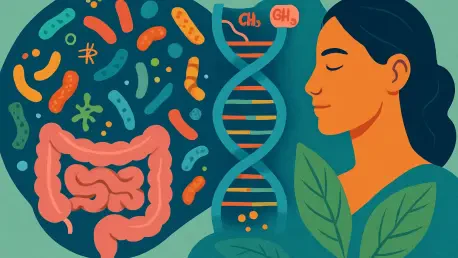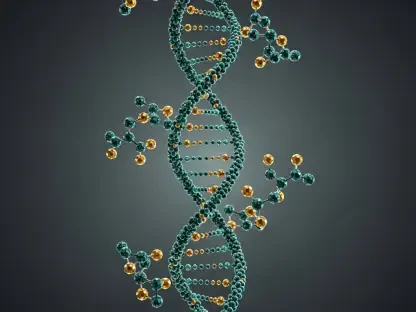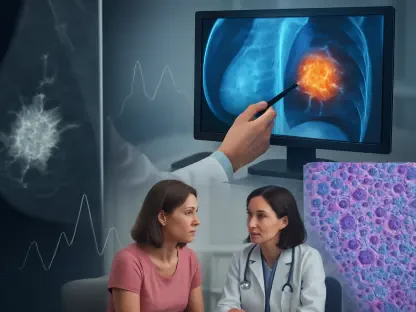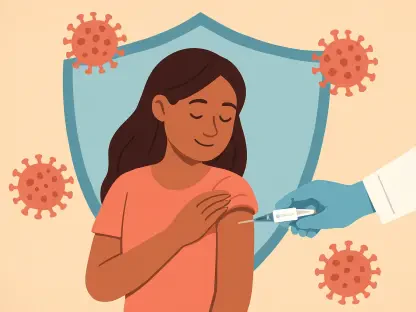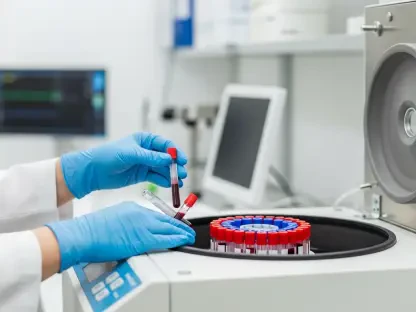What if the trillions of tiny organisms living in your gut are silently controlling how your genes behave, shaping your health in ways you never imagined? Picture this: a microscopic army of bacteria, viruses, and fungi residing in your digestive system, whispering instructions to your DNA. Groundbreaking research from a leading university in Hawaiʻi, published this year, reveals that these gut microbes are far more than digestive helpers—they’re key players in a complex dance with epigenetics, influencing everything from disease risk to mental well-being. This discovery opens a window into a world where the invisible residents of your body could redefine medicine as we know it today.
Why This Invisible Alliance Matters
The significance of this microbial-genetic connection cannot be overstated. The gut microbiome, that bustling ecosystem of microorganisms, interacts with epigenetics—the science of how gene expression is regulated without changing DNA itself. This interplay holds clues to tackling pressing health challenges like obesity, diabetes, and even anxiety through the gut-brain axis. With chronic illnesses becoming a global burden, understanding how these tiny organisms steer gene activity offers a promising path toward personalized healthcare solutions that could transform lives.
This isn’t just a niche scientific curiosity. The implications ripple into everyday life, potentially altering how doctors approach prevention and treatment. If gut microbes can switch genes on or off, then nurturing a healthy microbiome might become as critical as any medication. This research underscores an urgent need to rethink health strategies, making this hidden alliance a topic of vital importance for everyone.
Decoding the Microbial Messages to Your DNA
At the heart of this phenomenon lies a sophisticated communication system. Gut bacteria produce metabolites—compounds like short-chain fatty acids—that act as chemical messengers. These messengers attach tags to DNA or associated proteins, tweaking gene expression in ways that can bolster immunity or regulate metabolism. For instance, certain metabolites have been shown to dampen inflammation by altering gene activity in immune cells, a finding that could pave the way for new anti-inflammatory therapies.
This interaction isn’t a one-way street. Lifestyle factors such as diet and stress reshape the microbial community, which in turn influences these epigenetic changes. A diet rich in fiber can fuel beneficial bacteria that produce health-boosting compounds, while chronic stress might disrupt this balance, triggering harmful genetic shifts. Meanwhile, an individual’s genetic makeup determines which microbes thrive, creating a continuous feedback loop that ties personal habits to biological outcomes.
The effects extend far beyond the gut. Emerging studies point to microbial signals affecting brain health, potentially altering genes linked to mood or cognition. Similarly, conditions like diabetes show patterns of epigenetic changes driven by gut microbes, hinting at a broader role in systemic diseases and aging. These mechanisms paint a picture of an intricate partnership, one that demands further exploration to unlock its full potential.
Expert Perspectives and Living Proof
Insights from the field add weight to these discoveries. A leading researcher from the Hawaiʻi study emphasized, “Gut microbes are active modulators of gene expression, not mere bystanders. This could redefine how tailored treatments are developed.” Such expert opinions reflect a growing consensus on the systemic impact of the microbiome, pushing the boundaries of what medicine might achieve in the coming years.
Real-world stories bring this science to life. Consider a patient in a recent clinical trial who underwent a fecal microbiota transplant to treat a persistent gut disorder. Post-treatment, not only did their microbial profile shift, but epigenetic markers tied to inflammation also changed, leading to significant symptom relief. This case, supported by rigorous data, highlights the tangible impact of microbial interventions and fuels hope for those battling chronic conditions.
These narratives, paired with scientific backing, illustrate a compelling reality. The power of gut microbes to influence gene activity isn’t confined to lab experiments—it’s already changing lives. Such examples serve as a bridge between complex research and the practical possibilities that lie ahead.
Practical Ways to Support Your Inner Ecosystem
Harnessing this knowledge offers actionable steps for better health. Start by nourishing the gut with a diet high in fiber—think whole grains, vegetables, and fruits—which supports bacteria that produce beneficial metabolites. Adding fermented foods like yogurt or kefir can also introduce helpful microbes, fostering a thriving internal environment.
Beyond diet, lifestyle choices play a crucial role. Managing stress through mindfulness or regular physical activity can prevent microbial imbalances that might lead to negative epigenetic shifts. Being cautious with medications, especially antibiotics, is equally important, as they can disrupt the delicate microbial balance. Small, consistent changes in daily habits can create a ripple effect on gene regulation and overall wellness.
Staying informed about emerging therapies is another key step. Advances in live biotherapeutics—using beneficial bacteria as medicine—and microbial diagnostics are on the horizon. Engaging with healthcare providers about gut health tests or clinical trials can provide personalized insights, aligning individual care with cutting-edge science.
Ethical Horizons in Microbiome Research
As this field races forward, ethical considerations come into sharp focus. Ensuring that microbiome-based treatments and technologies benefit diverse populations equitably is paramount. Supporting frameworks that promote fair data use and protect participant rights is essential to prevent disparities in access to these innovations.
Advocacy for responsible science is a shared responsibility. Encouraging discussions around data privacy and inclusivity in medical research helps shape a future where advancements serve all, not just a privileged few. This commitment to ethics balances the excitement of discovery with the need for fairness, ensuring that the promise of this research reaches every corner of society.
Reflecting on a Microscopic Revolution
Looking back, the journey into the gut microbiome’s influence on epigenetics marked a turning point in understanding human health. Scientists uncovered how these tiny organisms orchestrated gene expression, impacting everything from immunity to mental clarity. Real-life transformations, backed by expert insights, painted a vivid picture of potential, while practical steps empowered individuals to take charge of their well-being.
As this field evolved, the focus shifted toward actionable progress. Exploring microbial diagnostics, supporting ethical guidelines, and integrating lifestyle adjustments became the next frontier. This microscopic revolution laid the groundwork for a future where health solutions could be as unique as the trillions of microbes within, promising a new era of precision and care.
